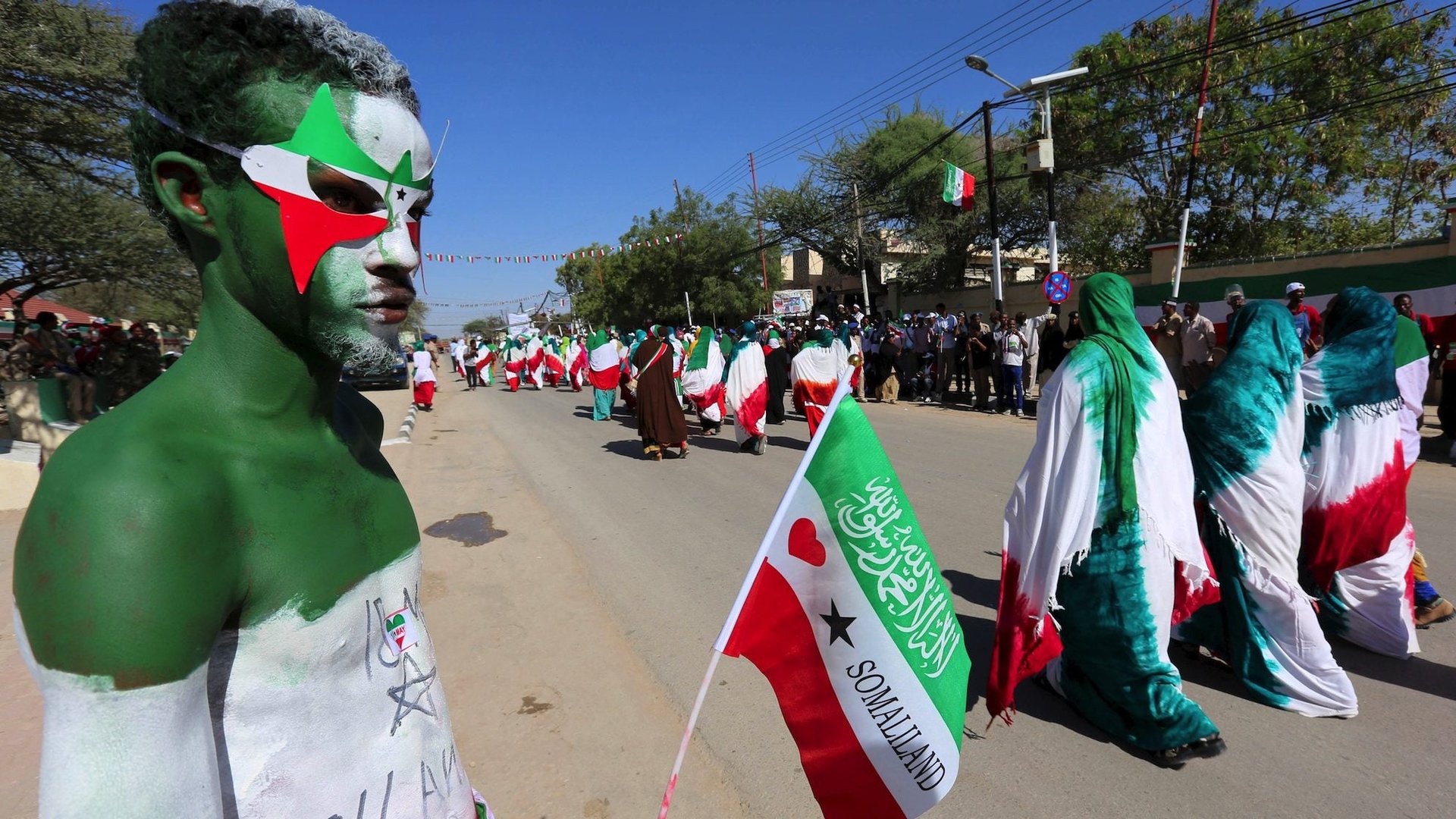China’s state broadcaster accidentally recognized the breakaway state of Somaliland
When a car bomb ripped through a market in Mogadishu on Sunday, killing at least 30 people, China’s state broadcaster in Africa, quickly covered the story. But CGTN, the newly rebranded international version of CCTV, made one notable mistake. A map shown by CGTN Africa showed Somaliland, a breakaway region in northern Somalia, as a separate state.


When a car bomb ripped through a market in Mogadishu on Sunday, killing at least 30 people, China’s state broadcaster in Africa, quickly covered the story. But CGTN, the newly rebranded international version of CCTV, made one notable mistake. A map shown by CGTN Africa showed Somaliland, a breakaway region in northern Somalia, as a separate state.
The broadcaster reacted with a lengthy apology on its Twitter page. “This is incorrect and we would like to apologize to all our followers from Somalia that it is not CGTN Africa’s intention to divide people of the great continent of Africa.” The apology added, ”We would also like to categorically state that the wrong map was a mistake by one of our editors and DOES NOT in any way reflect the STANDPOINT of the Chinese government.”
China, which has faced calls for independence in Hong Kong, Xinjiang, and Tibet, as well as the self-ruled island of Taiwan that Beijing claims is still part of China, does not generally support independence movements elsewhere in the world. And like the rest of the international community, it does not recognize Somaliland, which declared itself independent from Somalia in 1991.
As in Hong Kong and Taiwan, questions of national identity, colonial history, and the complications of separatist movements abroad complicate Somaliland’s quest for statehood, despite the fact that the territory has its own currency, bureaucracy, and security force. In the wake of US president Donald Trump’s ban on citizens traveling from Somalia, Somaliland has hired a lobbyist to request an exemption. Somaliland, its foreign minister argued, does not have the conditions of “war, strife, disaster, and civil unrest” that trouble Somalia proper.
Late last year, CCTV rebranded its international programs under the name CGTN, China Global Television Network, as part of its mission to ”cover the whole globe, reporting news from a Chinese perspective.” The broadcaster’s presence is particularly strong in Africa, where its journalists have more editorial freedom than other international channels or their counterparts in China.
Still, some topics are off limits, according to Chinese media researchers. These include human rights activist Desmond Tutu, a friend of the Dalai Lama’s, or visits to the continent by Pope Francis, who Beijing does not recognize as the head of the Catholic church. Somaliland’s unique status may now be added to the list of taboo topics.